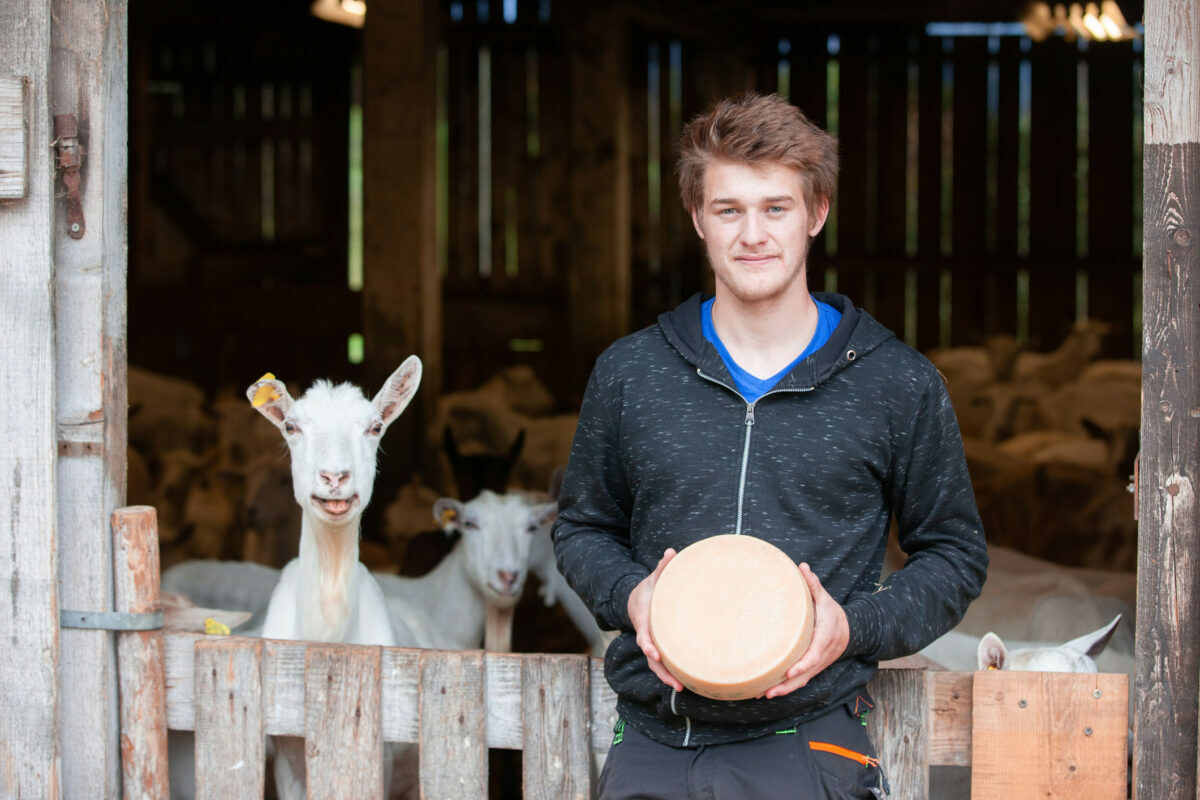Green Jobs: what does an Environmental Engineer do?

The role of an Environmental Engineer involves assisting food and drinks manufacturers with their everyday operations, as well as helping them find more sustainable ways to create their products.
A big part of the role has to do with resource efficiency, says Nicholas Watson, Associate Professor from the Department of Chemical and Environmental Engineering at the University of Nottingham. “That could be to do with the materials you’re using. So, for all the raw materials you’re taking, all of them end up in your final product, or you could be optimising the renewable resources to use, which would be energy and water.
“A big thing is also trying to minimise the amount of waste you’re trying to create, or also looking for value in that waste,” he adds. “For example, if you were a brewery, you’ve got your spent grains from the mastering process. Now, you could just dispose of that, or you could use it. There’s value in that, there’s calorific content. So typically, it would go to a farmer’s animal feed, or you could put it into a device, something like an anaerobic digestion plant to create energy from it. It’s all about managing the materials in an efficient way.”
Other aspects of the role can include keeping an eye on current emissions, effluent levels (sewage), and making sure that any dangerous chemicals are removed from the production site.
Following an Environmental Engineer career path offers multiple opportunities to make the food and drinks industry a greener place. As Nicholas says: “There’s not an industry globally that has more of an impact on the environment than food production.
“You’ll have a rewarding career, be making tasty, safe products that people love, but you’ll also have a massive impact on the environment. We’re trying to get around Net Zero and Cop 26 initiatives in the industry at the moment, so you’ll also be tackling some of these really ambitious targets. You really can really make a difference.”
What are the job responsibilities?
- Assessing the environmental risks that may be involved in different types of production going ahead
- Working in collaboration with land planners, environmental scientists, and agricultural engineers to work out solutions to environmental issues in the company’s current method of production
- Collecting data together from site assessments, environmental observation and analysis, and reliable reports
- Creating reports in response to data findings on issues such as health and safety risks, environmental and/or financial impact
- Removing harmful chemical substances from the production site or from food and animal feed that could have entered the product during production or in transportation
- Building plans for transporting goods that stick to strict health and safety protocols
Who might your employers be?
Employers for this job in the food industry could include:
- Food and drink manufacturers including Unilever, Ingredion and McCormick & Company
- Packaging companies such as Graphic Packaging International
- Universities (for a more academic teaching role)
What qualifications do you need?
To follow this career path, the best route may seem to be taking a BA degree in Engineering or Sustainable Engineering. However, studying an undergraduate degree in any of the following fields can help you get there:
- Environmental Science
- Geology
- Chemistry
- Physics
- Mathematics
- Geoscience
Taking on a Master’s course isn’t obligatory if you want to follow this career path, but it can make you stand out to employers, especially if you’re looking to go into the food and drinks industry. Some that are currently open for applications in the UK include:
- MSc in Food Processing at University of Nottingham
- MSc in Environmental Engineering, which is offered at several universities in the UK including University of Bath, University of Nottingham, Imperial College of London and University of Strathclyde
- MSc in Water Engineering at University of Sheffield
Work experience can also give you extra knowledge about Environmental Engineering, as well as a range of key skills that will make you a better candidate in job applications. Taking on an industrial placement in the food and drinks sector as an engineer will allow you to gain an introduction into working with food safety and often the environment too.
What is the salary like?
Entering this role as a graduate will likely begin with a salary of £18,000-£28,000, but with more experience the amount can increase to a maximum of £45,000. The amount you earn however depends on the employer as well as the size of the company, and where you are working in the country.
Where will you be working?
An Environmental Engineer can be expected to work around 40 hours a week, but this can vary, sometimes with overtime work being needed, depending on the urgency of the task at hand.
This role is far from an office job and involves lots of travel between different sites. Staying away from home for long periods at a time is quite a common aspect of the position, but this does depend on what kind of projects are being completed and where they are taking place.
What’s the career progression like?
Progression in this job relies on getting involved with a lot of different projects and finding successful solutions for the challenges that they may present. The more experience gained in this role, the more intricate the tasks may be.
Due to the varied nature of the job, it means that you can build a very useful skillset that is transferable to other engineering roles, but that also allows you to be at the heart of making greener developments through engineering. As Nicholas notes: “I think there’s lots of skills you develop, and I think the idea that everything we do has an impact on the planet is something that’s never going to go away, it’s going to get bigger.”
Is there demand for this job?
In the UK more engineers are needed to fill the gap that currently exists in this part of the food industry. As Nicholas says: “There’s always companies looking, and trying to get qualified engineers who understand environmental issues.”
Taking on the career path of an Environmental Engineer in the food and drinks sector is a brilliant opportunity says Nicholas. “As a sector, it’s often a lot more resilient to some of the other destinations for engineers, because there is always a need for food, there’s a raising global population that need feeding.”
With more food and drinks manufacturers evaluating how they might have less of a negative impact on the environment, Environmental Engineers will continue to be in demand as long as climate change remains a significant issue that the food industry needs to tackle.








